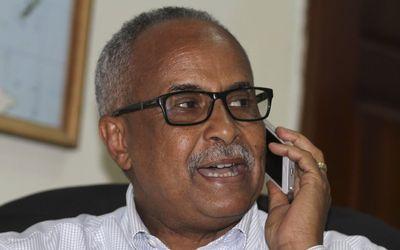
Debating Ideas is a new section that aims to reflect the values and editorial ethos of the African Arguments book series, publishing engaged, often radical, scholarship, original and activist writing from within the African continent and beyond. It will offer debates and engagements, contexts and controversies, and reviews and responses flowing from the African Arguments books.

Left to right: Joana Mamombe, Cecilia Chimbiri and Netsai Marova
This was meant to be an interview. A few weeks ago, I arranged to talk with Joana Mamombe, Zimbabwe’s youngest Member of Parliament, about her recent experiences of state violence. Mamombe is only 27 years old and her parliamentary career began in 2018 when she was elected as the Movement for Democratic Change Alliance representative for Harare West. In these few years, though, she has experienced more hardship than most seasoned politicians ever know. When I asked if she was comfortable talking about these experiences on the record, she said, ‘it’s important for me to put my story out there … it hasn’t been easy.’ On the day of our interview, however, Mamombe and two other MDC-A female activists – Cecilia Chimbiri and Netsai Marova – who are collectively known as ‘The Trio’, were arrested. Mamombe and Chimbiri were then sent to Chikurubi Maximum Security prison where they are still currently being held.
ZANU(PF)’s lockdown lawfare
The Trio’s story is about how Emmerson Mnangagwa’s ZANU(PF) attempts to brutally silence their rivals and critics and, in particular, attacks the femininity of young women who speak out. Their experience is not atypical. Since the start of the Covid pandemic, ZANU(PF) has wholeheartedly embraced the use of Covid emergency laws to target their high-profile opponents. This shattered the new government’s pretence of institutional reforms prior to the pandemic, when they began a process to repeal and replace some of the country’s most repressive laws. Instead, it signalled a return to the grim, well-established trend of using the law as a political tool. Under these Covid laws, 23-year-old student leader Allan Moyo spent 74 days in prison for leading a protest against the government. Last Friday (26 March), the 22-year-old student leader Takudzwa Ngadziore was released after 28 days in jail for similar offences. Another young leader, Makomborero Haruzivishe, remains in jail. Zimbabwe’s extensive Covid laws not only police public space by prohibiting public gatherings but also criminalise public criticism of ZANU(PF)’s version of events. A person can be imprisoned for up to 20 years if they ‘communicate false news’ on the basis of these laws, which lawyers have argued is unconstitutional. The journalist Hopewell Chin’ono was arrested under these laws last July after he exposed a Ministry of Health corruption scandal over a $60m purchase of Personal Protective Equipment. Although the Health Minister was ultimately fired, the regime targeted Chin’ono in the months that followed. On 9 January, Chin’ono was arrested for the third time in six months. The following day, his lawyer and an MDC-A leader, Job Sikhala, was arrested using the same law. Then on the Monday, Fadzayi Mahere, the MDC-A’s spokesperson, was, she said, placed ‘under arrest for my tweets.’ Through the arrests, re-arrests, denials of bail, and time in prison, these activists were made to suffer ignominy. Despite the pandemic, they were imprisoned in overcrowded cells, where they would typically sleep on dirty, lice-infested blankets and walk barefoot on urine-soaked floors. In defiance of court orders, police brought Sikhala to court in handcuffs and leg-irons – a humiliating punishment usually reserved for hardened criminals.
A country for old men
So what is the point of these campaigns? In part, they seem to be yet another example of ZANU(PF)’s long-standing belief that only it can rule Zimbabwe – one of the few Maoist ideas, perhaps, that the party took to heart in the 1970s liberation war. Since the early 1980s, party leaders have attempted to make this belief into a political fact, through a series of brutally violent campaigns and constitutional initiatives against their political rivals. Didymus Mutasa, a ZANU(PF) stalwart, put it bluntly in 2001, when he said of MDC supporters, ‘those who do not understand must be beaten until they do understand’. This logic has historically held whoever their opponents were, whether the MDC, ZAPU, ZUM or ZANU(Ndonga). It is this apparent political fact that explains the reason why today the state punishes critical journalists and MDC activists for contravening Covid laws but ignores ZANU(PF)’s own blatant disregard for them, for instance, at their recent well-attended rural rallies.
But there is more to this than just ZANU(PF) supremacy. As with many liberation parties in Southern Africa, ZANU(PF)’s political legitimacy is rooted in its historical struggle against white minority rule and those ‘heroes’ who prosecuted the struggle are granted a rarefied authority. This narrative was central to the ‘patriotic history’ that the party used to justify its rule in the 2000s. But it is also true in what Mnangagwa calls Zimbabwe’s ‘Second Republic’ following the 2017 coup, which the country’s new leaders justified in order to ‘rescue the values and the ethos of the liberation struggle.’[1] These liberation discourses inscribed a form of political gerontocracy into Zimbabwe’s politics. The nation was cast within a narrow set of strictly controlled patriarchal metaphors that associated male age with political authority. As Kizito Muchemwa argues, ZANU(PF) used ‘fatherhood to foreclose political debate’. This rhetoric shaped the party’s leadership composition. When ZANU(PF) lost the 2008 Parliamentary elections, Mugabe and his second Vice-President, Joseph Msika, had a combined age of 167 and the Party’s Youth League leader, Absolom Sikhosana, was in his late 50s. Yet such generational entitlement has serious risks, particularly in a country where over half of the population is estimated to be under 25 and where the party’s ageing stalwarts point-blank refused to use social media until 2013. These risks were recognised by some ZANU(PF) leaders and particularly Mnangagwa’s unsuccessful rivals in the ‘G40’ faction’ for whom ‘generational renewal’ was a key slogan.
ZANU(PF)’s gerontocracy has also become central to MDC politics. Since the 2018 election campaign, Tsvangarai’s successor, Nelson Chamisa has repeatedly shown that his youthful, charismatic message of change and preacher-like style is hugely popular among Zimbabweans. Under Mnangagwa’s leadership, ZANU(PF) has sought to supress the MDC-A’s popularity through promises of development, a militarised crack-down on activism, some high-profile young appointments and a dirty tricks campaign. These steps highlight the hostility ZANU(PF) has toward Chamisa’s brand of exuberant, youthful, populist politics and their determination to stamp it out.
State hostility to young MDC activists takes particular forms towards women. As many brilliant scholars have shown, including Glanis Changachirere here on Debating Ideas and Sandra Bhatasara and Manase Chiweshe in their recent research, Zimbabwe’s politics has always been intensely patriarchal. To be a young woman who drives political change – in the ruling party, in the opposition, or in the unions – takes so much more skill and guile than it does for men who can saddle into the various forms of politically acceptable masculinity. ‘The fate of all political women’, Rudo Mudiwa has argued, is to be ‘read as wantonly, irredeemably, sexual’. To get things done as a woman in politics means manoeuvring around the misogynist attacks, including, for instance, the threat of being labelled a prostitute. Use of this label is one of the most common tactics used to push women out of public life and was precisely the tactic used by the leaders of the Second Republic to attack Grace Mugabe during the succession battles that led to the 2017 coup. Taken together, these powerful ruling discourses make political life in Zimbabwe’s ‘Second Republic’ into a country for ZANU(PF)’s old men and helps explain the logics that have underpinned the Trio’s experience over the last year.
Dangerous dreams for political futures
I first met Joana Mamombe in 2014, when she was a leader in Zimbabwe’s National Students’ Union, ZINASU. At the union meetings I attended, she spoke with a deep, resonant voice and earnest conviction that gave her a charismatic hold over her audiences. She had shrewd political instincts too. During the 2000s, ZINASU had become increasingly dependent on the MDC in response to the country’s economic collapse and ZANU(PF)’s persecution of the union. Whilst ensuring their continued survival, dependencies between the party and the union created serious tensions within the student movement. In 2014, following the MDC’s election defeat and further political in-fighting, Joana and the ZINASU Secretary General, Obey Sithole, publicly showed their loyalty to Morgan Tsvangirai. The move paid off and in the years that followed, their political careers took off like helicopters: Sithole became the party’s influential Youth Assembly chairperson and Mamombe became an MP in 2018. In Chamisa’s MDC-A, these two former student leaders were exactly on brand as energetic, loyal, young party representatives. Their place in the MDC-A’s political project, however, led them to face Mnangagwa’s ZANU(PF).

Joana Mamombe with Morgan Tsvangirai (centre) and Obey Sithole
In late afternoon on 13 May 2020, the MDC-A tweeted that ‘the whereabouts of Joana Mamombe, Cecilia Chimbiri & Netsai Marova are presently unknown.’ A few hours earlier, the three women had been arrested at a police roadblock in Harare. Despite their lawyers visiting all of the local police stations they were nowhere to be found. Two days later, the women staggered into a shopping arcade 60 miles away having been beaten, tortured and sexually assaulted. Instead of investigating, ZANU(PF) responded with contempt and ridicule. Whilst the women were recovering in hospital, court officials paid them a visit to charge them with ‘inciting public violence’ and once they were discharged the police arrested and charged them with faking their abductions. They were imprisoned in Chikurubi for two weeks – where Mamombe had her 27th birthday – during which time ZANU(PF) officials took to the airwaves to pour scorn on the women’s account of events. Deputy Information Minister, Energy Matondi, described them as ‘comedians’ who had ‘put bruises on their bodies.’ Nick Mangwana, the party Secretary of Information, said he had ‘irrefutable evidence that there was no abduction.’
The attack on these women and the public gas-lighting that followed was a demonstration of the power that ZANU(PF)’s old men could exercise over women in the ‘Second Republic’. And it was not the end of the ordeal. In September, Mamombe was reported to have had a nervous breakdown and was admitted into a mental health clinic, where she missed a court bail hearing. In response, the presiding magistrate issued an arrest warrant and she was sent to Chikurubi, again, for 14 days. Just as with the initial attack, ZANU(PF) responded with contempt. In November, when Mamombe asked a question in Parliament about violence against young women, the ZANU(PF) legislator Joseph Chinotimba dismissed her as ‘mentally-ill’– a statement he was forced to withdraw. This lawfare campaign of arrest and imprisonment against these women has continued since the start of the year. Mamombe and Chimbiri were arrested again in February – allegedly for insulting a police officer – and imprisoned for eight days. Then, the day of her interview with me, they were arrested again – and face a maximum sentence of ten years if convicted.
ZANU(PF)’s campaign against these women during the pandemic is part of a wider shift in Zimbabwean politics. The leaders of the ‘Second Republic’ have revived ZANU(PF)’s talk of a one-party state and they seem determined to eliminate Chamisa’s MDC alternative. The Trio’s abduction, assault, humiliation, dismissal as hysterical, re-arrest, and denial of bail – is a story of ZANU(PF)’s political gerontocracy punishing those young women who represent political rivalry and who speak out against them. Yet against this brutal project are those who refuse to accept that political affiliation should determine justice, that youth should sit in deference, and that femininity should mean silence.
End Note:
[1] ‘Operation Restore Legacy is a Miracle’, The Herald, Harare, 13 April 2018.






